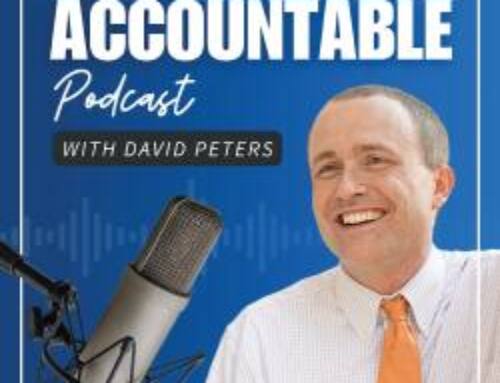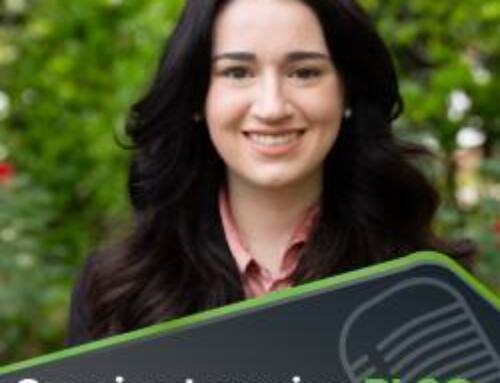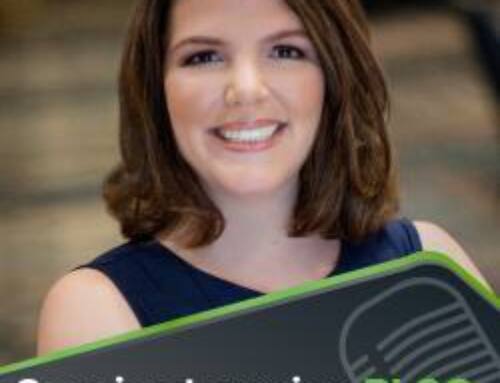Welcome to the Federal Tax Update Podcast, hosted by Lynn Nichols. This is presented as a member benefit by the South Carolina Association of CPAs. It is produced to provide current information about developments in U.S. tax law, such as cases, ruling, IRS pronouncements and expert comments on hot topics.
The commentary is brief, and you should not take a position on the items discussed until you thoroughly examine it with authoritative sources. All topics can be found discussed in further length at Tax Notes Today.
“I have relied on Tax Analysts® to provide reliable and timely analysis of Federal tax developments for over 30 years. The ‘headnotes’ you see here are from ‘Tax Notes Today,’ the preeminent source of accurate information and analysis of important developments and trends in Federal taxation,” Nichols says.
You can contact Lynn Nichols at lynnnicholscpa@outlook.com or 714.321.3387 and connect on LinkedIn.
The Eleventh Circuit, affirming a district court decision that affirmed a bankruptcy court, held that a couple’s tax debt was not dischargeable, concluding that the bankruptcy court didn’t clearly err in finding that the couple willfully attempted to evade their tax debt based on their excessive spending and exploitation of the offer-in-compromise process. [Kathleen Marie Feshbach et vir v. Dept. of Treasury; No. 19-10060, 9/9/2020]
Nichols note: “Item #1 is about a couple whose tax debt could not be discharged in Bankruptcy due to their excessive personal spending. While seeking to compromise their tax debt, they continued a ‘lavish lifestyle,’ including thousands of dollars every month for ‘entertainment,’ household help, purchases of luxury goods (Coach, Gucci, Tiffany, etc.). They were only entitled to the schedule amounts for living expenses … Thousands LESS than they continued to spend AFTER being warned. We expect there will be many attempts to negotiate relief from income tax debts as a result of the economic downturn caused by the pandemic. Business clients of SCACPA members will need help to navigate the tax rules on penalty relief, debt forgiveness and reorganization in bankruptcy. This decision is a reminder that there are rules to follow if we want any sort of consideration of a taxpayer’s difficult circumstances.”
The Eleventh Circuit, affirming a Tax Court decision, held that a couple couldn’t claim the foreign earned income exclusion under section 911 for income the wife earned while working in Afghanistan because her abode was in the United States. [Janice Kay Haskins et vir; CA 11, No. 20-10692, 9/8/2020]
Nichols note: “Item #2 is a technical piece on a very technical point. In order to qualify for the Foreign Earned Income Exclusion, your ‘abode’ must be in the foreign country; not just your physical presence. This taxpayer was physically present in Afghanistan, and working there for the required time, BUT . . . she lived in temporary quarters … a guarded compound! She did not provide any of the attributes of an ‘abode.’ Fascinating attention to the true meaning of words. Her permanent ‘abode’ was in the U.S. where she maintained a home, along with social and family connections.”
The IRS denied tax-exempt status to an organization formed to plan, develop, and operate a greenspace and transportation project, finding that it failed to provide enough details and documentation to establish that it is operating exclusively for section 501(c)(3) purposes. [LTR 202036007, 6/11/1010, rel. 9/4/2020]
Nichols note: “Item #3 is a reminder that good intentions will not be enough to get or keep tax exempt status. The IRS will look at how an entity operates (what does it do? who benefits from its activities?). ‘Green’ is not enough, no matter how compelling that concept may be.”
The IRS has addressed (Notice 2020-66) whether Medicaid coverage of COVID-19 testing and diagnostic services is minimum essential coverage and has announced Treasury and the IRS’s intention to add testing and diagnostic services to the list of healthcare coverage that is not minimum essential coverage under a government-sponsored program. [Notice 2020-66; 2020-40 IRB 1, 9/9/2020]
The Tax Court held that an IRS notice of deficiency was issued after the limitations period in section 6501 expired, finding that an individual’s return that was filed but not accepted was a required return that was properly filed and thus triggered the running of the statute of limitations. [Robin J. Fowler; No. 12810-18; 155 T.C. No. 7, 9/9/2020]
The Tax Court held that a nonprofit funeral services company was not entitled to tax-exempt status under section 501(c)(3) because it was not operated exclusively for one or more exempt purposes, finding instead that its primary activity is the provision of funds to defray or pay for the funeral costs of its members, which is not an exempt activity. [Korean-American Senior Mutual Association Inc.; No. 21829-17X; T.C. Memo. 2020-129, 9/9/2020]
The IRS has released a list of frequently asked questions for participants in the marijuana industry, addressing income and employment tax return filing obligations, available payment plans, applicable penalties for compliance failures, the ability to reduce gross receipts, and the requirements for large cash payments. [Marijuana Industry Frequently Asked Questions; 9/9/2020]
The IRS has requested comments on Form 15254, “Request for Section 754 Revocation.” Comments are due by Nov. 9. [85 F.R. 55936-55937; 9/10/2020]
The IRS has released a practice unit on audit techniques for examiners who are assigned cases regarding the foreign earned income exclusion, the foreign housing exclusion, or the foreign housing deduction. [INT-P-222; 8/11/2020. Rel. 9/11/2020]
A federal tax specialist for 50 years, Lynn Nichols provides tax consulting services to CPA firms on complex federal income tax issues, professional standards in tax practice and effective tax practice management. Check out his Tax Updates video playlist.
Click and subscribe to the SCACPA YouTube channel so you don’t miss another update on guidance from the experts.



